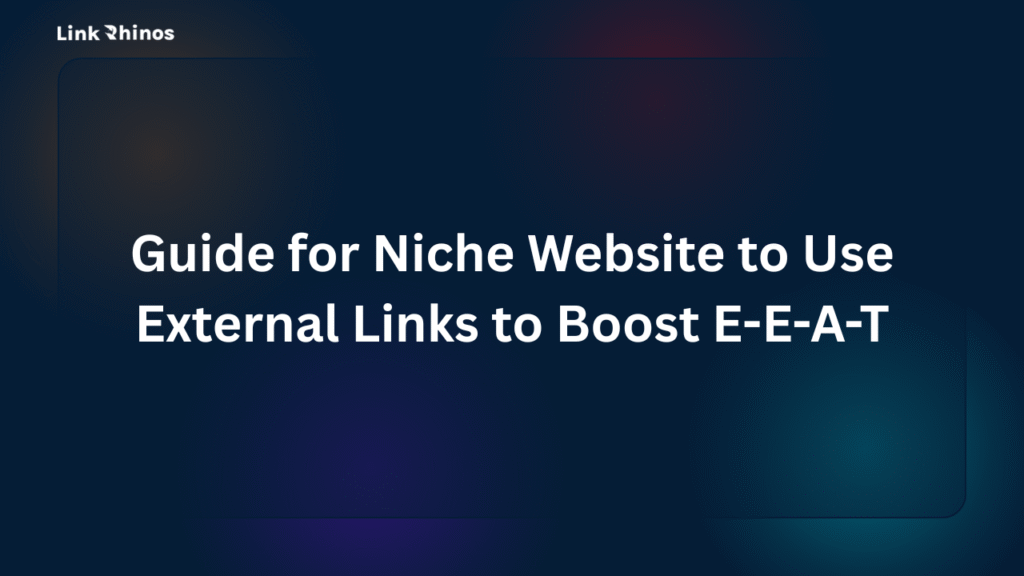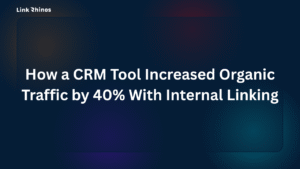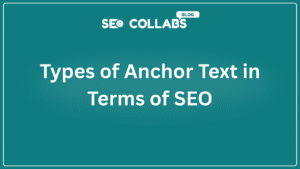Imagine this: *A niche vegan recipe blog skyrocketed its Google rankings by 60% in three months, not by keyword stuffing, but by strategically linking to peer-reviewed nutrition studies and USDA dietary guidelines.* Their secret? Leveraging external links to amplify E-E-A-T (Expertise, Authoritativeness, Trustworthiness, Experience)—Google’s gold standard for content quality.
For niche websites, E-E-A-T isn’t just a buzzword—it’s your ticket to dominating search results and winning audience trust. In this guide, you’ll learn how to wield external links like a pro to supercharge your credibility, with actionable steps, tools, and a spotlight on how SEO Collabs simplifies ethical backlink-building.
Table of Contents
Why E-E-A-T Matters for Niche Websites
Niche audiences crave specialized, reliable information. Whether you’re running a site about rare coin collecting or sustainable architecture, Google rewards content that demonstrates:
- Expertise: Deep knowledge in your field.
- Authoritativeness: Recognition as a go-to resource.
- Trustworthiness: Accurate, transparent, and safe content.
- Experience: First-hand understanding of your topic.
External links act as credibility endorsements, signaling to search engines and users that your content is grounded in reputable research.
Also Read
How External Links Boost Each Pillar of E-E-A-T
1. Expertise: Prove You’ve Done Your Homework
- Example: A cybersecurity blog linking to MIT’s research on encryption algorithms.
- Action: Cite academic journals, industry reports, or expert interviews.
- Tool: Use Google Scholar to find peer-reviewed sources.
2. Authoritativeness: Align with Established Leaders
- Example: A sustainable fashion site referencing the Ellen MacArthur Foundation’s circular economy principles.
- Action: Link to .gov, .edu, or well-known industry sites.
- Tool: Ahrefs’ Backlink Checker to identify high-authority domains.
3. Trustworthiness: Build Confidence with Reliable Data
- Example: A mental health blog citing WHO guidelines on anxiety management.
- Action: Use primary sources (studies, official statistics) over third-party summaries.
- Pro Tip: Avoid linking to forums or unverified blogs.
4. Experience: Show Real-World Applications
- Example: A DIY woodworking site linking to certified safety manuals or tool manufacturers.
- Action: Reference case studies, user testimonials, or tutorials from trusted brands.
5 Steps to Leverage External Links Effectively
- Source Strategically
- Prioritize sites with high Domain Authority (DA) and niche relevance.
- Use Moz Link Explorer to vet sources’ credibility.
- Link Contextually
- Embed links naturally within content (e.g., “A 2023 Harvard study confirms…”).
- Avoid generic anchors like “click here”—opt for descriptive phrases.
- Diversify Your Portfolio
- Mix .gov, .edu, and industry leaders to avoid over-reliance on one source.
- Audit Regularly
- Use SEMrush to spot broken or irrelevant links.
- Balance with Internal Links
- Pair external credibility with internal navigation (e.g., link to your cornerstone content after citing external research).
- Learn more: Internal vs. External Links: What’s the Real Difference?
3 Common Mistakes to Avoid
- Linking to Low-Quality Sites: A single spammy link can undermine trust.
- Over-Linking: Too many links distract readers and dilute equity. Stick to 3–5 per 1,000 words.
- Ignoring Relevance: Linking to off-topic sources confuses search engines.
How SEO Collabs Strengthens Your E-E-A-T

While external links build credibility, SEO Collabs helps you earn authoritative backlinks to cement your niche authority:
- Vetted Partnerships: Connect with high-DA sites in your niche for guest posts or collaborations.
- Compliance Checks: Auto-flag risky links and ensure “nofollow” tags for sponsored content.
- Performance Tracking: Monitor how backlinks impact your rankings and E-E-A-T growth.
Real-World Impact: A sustainable travel blog used SEO Collabs to earn backlinks from NatGeo and Lonely Planet, boosting DA from 35 to 55 in six months.
Conclusion
- Audit existing content for weak or missing external links.
- Replace generic citations with authoritative sources.
- Use SEO Collabs to build backlinks that align with your niche.
Ready to Transform Your Niche Site?
👉 Explore SEO Collabs to ethically scale your E-E-A-T and dominate search results.
Why SEO Collabs?
- Niche-Specific Networks: Partner with sites that match your expertise.
- Time-Saving Tools: Automate outreach and tracking.
- Penalty-Proof Strategies: Stay aligned with Google’s guidelines.
Your audience trusts you—give them (and Google) reasons to keep coming back.




